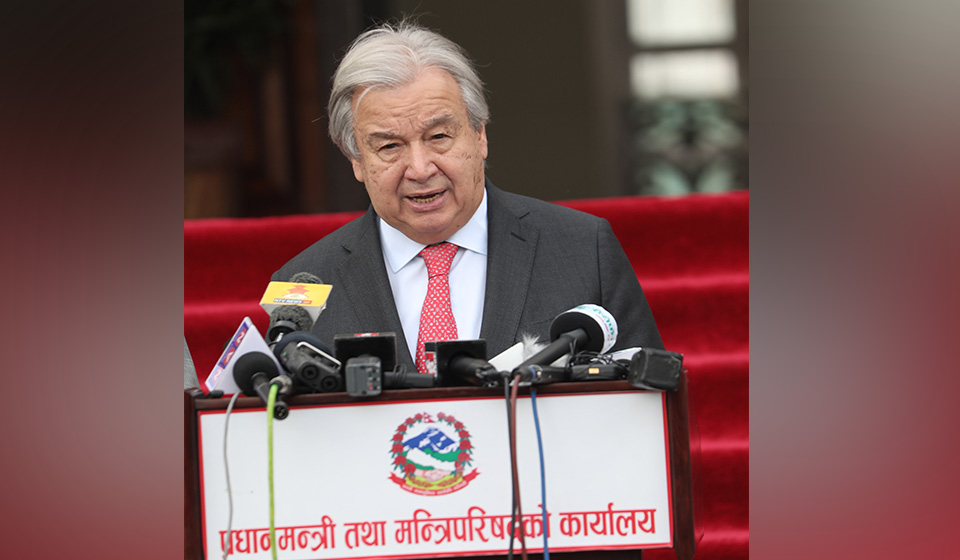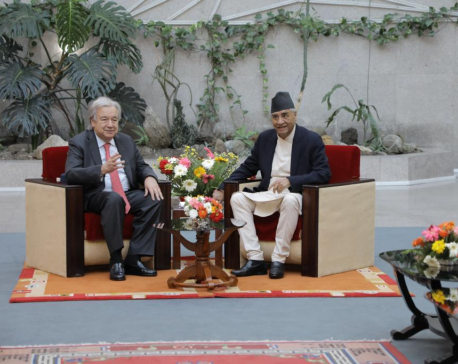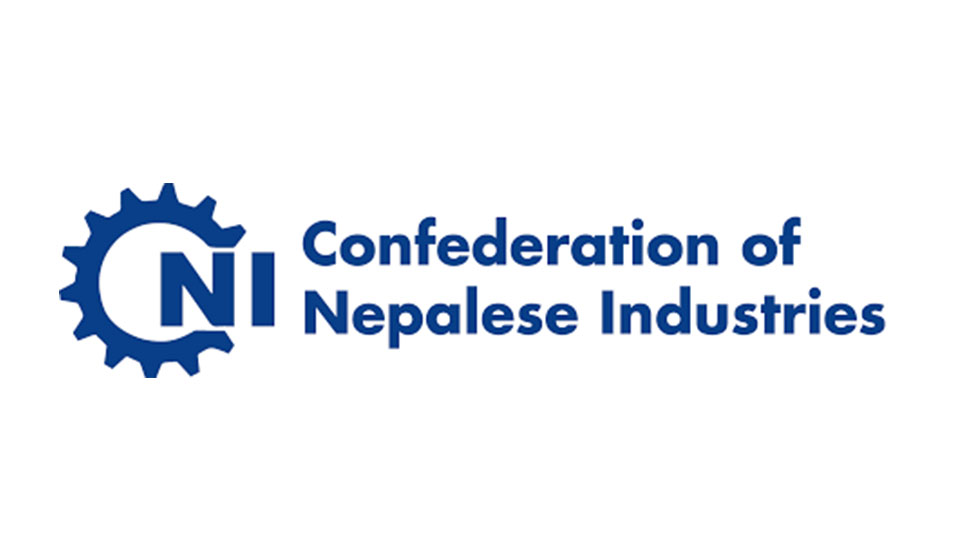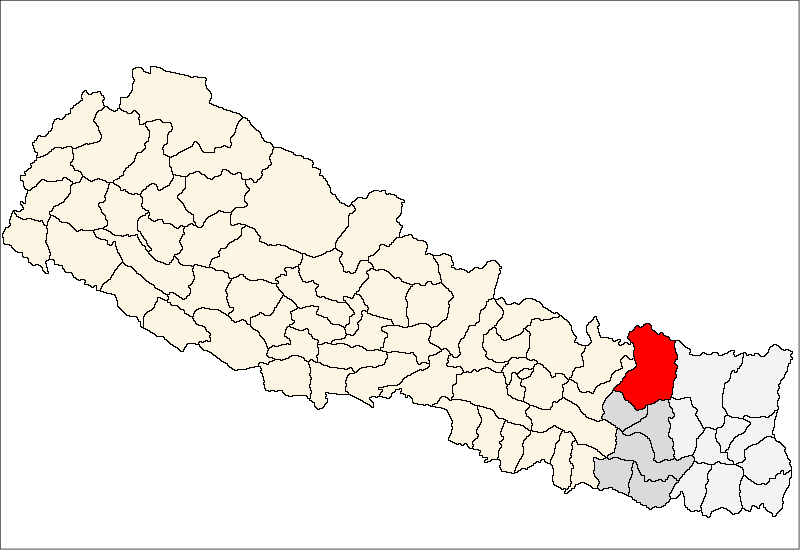
OR
#Editorial
Guterres's Message for Peace and Climate Action in Nepal
Published On: November 2, 2023 07:30 AM NPT By: Republica | @RepublicaNepal

During his four-day official visit to Nepal, United Nations Secretary-General António Guterres delivered a powerful message with significant implications for the nation's future. As he departed for New York on Wednesday, his visit left an indelible mark, emphasizing the importance of addressing climate change, concluding the transitional justice process in Nepal, and promoting peace in the region. Guterres' visit coincided with the upcoming United Nations Climate Conference, COP-28, set to be held in Dubai, United Arab Emirates, at the end of this year. This conference will gather representatives from 200 countries worldwide to address the pressing issue of climate change and safeguard the interests and rights of vulnerable nations like Nepal. The central theme of Guterres's visit was the impact of climate change on local communities, particularly those living in regions affected by climate change, such as the Everest and Annapurna regions. He met with communities in Khumbu Pasanglhamu Rural Municipality-4, located in the Everest region, and discussed the challenges they face due to climate change. He pledged to draw the world's attention to the adverse effects on Nepal's mountains and vowed to include the perspectives of the local population in the discussions at COP-28.
The secretary-general's commitment to highlighting the plight of Nepal in the face of climate change is commendable. While Nepal has made substantial efforts in forest protection, transitioning to clean energy, promoting electric vehicles, and implementing local climate adaptation plans, the country has still experienced intensified heavy rains, floods, landslides, and economic losses due to climate change. Despite enacting laws, policies, and regulations for climate change and environmental protection, Nepal's efforts have not been sufficient to mitigate the growing crisis. Furthermore, the nation has struggled to attract the international climate finance it urgently requires, and project implementation related to climate change has lagged behind. His visit has put pressure on Nepal's political leadership to make climate change a central element of overall development planning. His visit underscores the need for strong political commitment to effectively address the climate crisis. He rightly pointed out that climate change, biodiversity loss, and pollution are the three major global crises of our time, posing a serious challenge to human existence. The melting of glaciers in Nepal is particularly concerning, and Guterres's call for a collective political commitment from Nepal is timely. Climate change is not merely a matter of science; it has evolved into a political and diplomatic issue. His visit has provided Nepal with an opportunity to shape its climate diplomacy with the right strategy, an opportunity the nation cannot afford to miss.
In addition to addressing climate change, Guterres also touched on the need to complete the peace process in Nepal while ensuring the rights of victims. He emphasized the United Nations' commitment to supporting Nepal in this endeavor. He acknowledged the aspirations of the Nepali people for peace and expressed sympathy for the innocent lives lost during the decade-long Maoist conflict. From Guterres's statements and actions, it is evident that he is in favor of upholding victim-friendly justice while completing the peace process. He has clearly underscored the need to address the crimes committed by both sides during conflicts not just in Nepal but also in other regions, including the ongoing Israel-Hamas war. These aspects of Guterres' visit are crucial, as they will have a lasting impact on Nepal's progress. Guterres' sincerity and directness in addressing these issues offer a unique opportunity for Nepal to advance its climate and peace agendas. The extent of the success of Guterres' visit will ultimately depend on the willingness of Nepal's political leadership to heed his message and take meaningful action in response to these pressing challenges.
You May Like This

UN Secretary-General calls on NC President Deuba
KATHMANDU, Oct 29: Visiting United Nations Secretary-General Antonio Guterres today paid a courtesy visit to Nepali Congress (NC) President and... Read More...

Climate activist: Why tout development if there’s no future?
NEW DELHI, Sept 27: An Indian girl who was among the 16 young activists filing a complaint at the United... Read More...

Agenda for Europe
AMSTERDAM – The European Union has spent much of the past decade managing crises, and has even faced a possible... Read More...






Just In
- Tourists suffer after flight disruption due to adverse weather in Solukhumbu district
- Vote count update: NC maintains lead in Ilam-2
- NAC's plane lands at TIA after its maintenance in Israel
- Indian Ambassador assures of promoting India's investment in Nepal
- Freak accident involving self-made pistol leaves young man injured in Banke
- Global Shapers Community Kathmandu set to host second edition of Global Talk Series
- CNI President Agrawal highlights Nepal's conducive investment climate at Investment Summit
- Hearing on case against cricketer Lamicchane could not proceed today












Leave A Comment